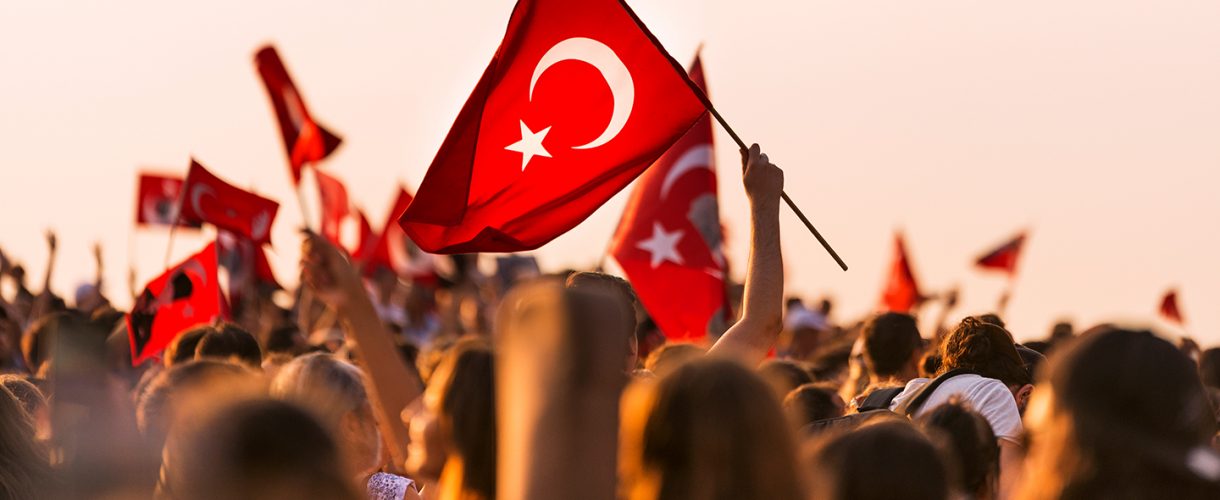
Financial Corruption
Under Erdogan, Turkey has undergone a steady erosion of its already fragile democracy into an authoritarian system, where no branch of government and almost no sector of the economy is fully independent of the executive branch. Erdogan’s closest associates control large portions of the construction, energy, communications, financial services, and media sectors. This system of kleptocracy ensures that the best business opportunities go to the most loyal members of Erdogan’s party, or those with familial connections, and that any illegal activity or tax evasion goes unreported and unpunished.
According to the OECD, “Turkey’s foreign bribery enforcement framework needs to be urgently strengthened, and corporate liability legislation needs to be reformed.” Turkey is among the top 5 declining countries on Transparency International’s Corruption Perception Index since 2012, ranking last among European Union countries and third to last among OECD countries in 2020. In 2021, Turkey’s score on the Corruption Perceptions Index decreased two points again, with the NGO reporting it at a 38/100 in January 2022.
A report published in December 2020 by Transparency International has described Turkey’s lack of transparency around corruption, money laundering, and bribery as “state capture,” in which the state has “undue influence on the judiciary and on law-making.” The lack of due process and the lack of successful regulation lead to rampant corruption.
Turkey has a weak legal framework in place to properly investigate, freeze the assets of, or convict money launderers and financial criminals. Instead, investigations into money laundering and sanctions evasion schemes are blocked, and their investigators dismissed or imprisoned.
The Financial Action Task Force concluded in 2019 that “serious shortcomings” persist in Turkey’s attempts to monitor and enforce its own laws against money laundering and terror financing. FATF warned Turkey that it faces significant money laundering risks from drug trafficking, migrant smuggling, human trafficking, and fuel smuggling.
In 2013, an investigation into Halkbank—Turkey’s state-owned central bank—implicated the bank in a fraud of global proportions: Halkbank has helped Iran evade strict U.S. sanctions by smuggling at least $20 billion in oil revenues from 2010 to 2015 alone. In 2018, deputy head of Halkbank Mehmet Hakan Atilla was convicted for evasion of U.S. sanctions, and Halkbank itself is being criminally prosecuted for money-laundering and sanctions busting.
The most recent Turkish institution to come under fire for illicit finance is the state-owned Ziraat Bank. In 2014, the federal reserve launched a probe into the Bank’s New York branch for suspicion of sanctions evasion, and in 2017 the Department of Justice investigated it in relation to the Halkbank case. In January 2021, evidence emerged that the Turkish Sovereign Wealth Fund—state owned and headed by Erdogan—used Ziraat Bank to disappear a nonperforming loan that had been used to purchase Turkcell, Turkey’s largest mobile phone operator.
During Erdogan’s 20-year reign, his government has altered the Public Procurement Law nearly 200 times. This has meant that Erdogan’s closest allies, in particular a small group of oligarchs known as the “gang of five,” receive an overwhelming percentage of government tenders. A CHP report has stated that the government has issued 330.5 billion liras worth of tenders, and 50% of those were won by the same 20 companies—24% of those went to the “gang of five.”
Four out of these five companies were investigated for fraud, corruption, and tax evasion in 2013. Those cases were dismissed and all of the investigating officers are currently in prison. Protests against this scandal were violently suppressed.
In 2021, the FATF once again placed Turkey on its grey list, citing its lack of supervision, particularly in the banking and real estate sectors. According to FATF President Marcus Pleyer, Turkey needs to demonstrate its ability to tackle “complex money laundering cases” and a willingness to prosecute “U.N.-designated terrorist organizations.” Failure to do so could result in Turkey’s black-listing.
Turkey’s grey-listing in 2021 came after several warnings from the institution that the country needed to “swiftly improve” the implementation of its anti-corruption laws. Rather than address these concerns, President Erdogan’s government continues to reward sanctions evaders like Mehmet Hakan Atilla, the architect of the Halkbank scheme, who was appointed head of the Istanbul stock exchange upon his release from prison. Meanwhile, the subjects of corruption scandals continue to be awarded expensive tenders with guaranteed government financing, such as the new Istanbul airport.